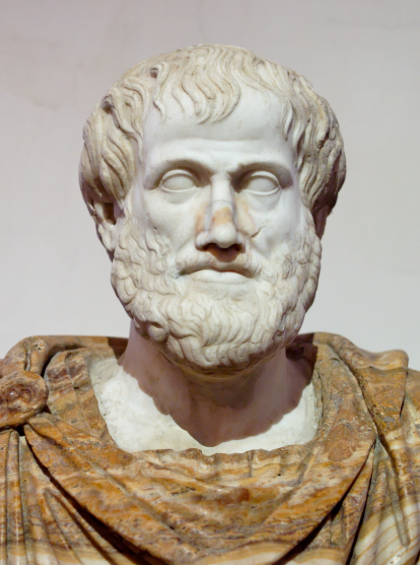Aristotle- the purpose of life

Aristotle is arguably the most well known name and philosopher in the world. Musing some two thousand or so years ago, he delved most famously into politics and ethics. Times might have changed, but Aristotle's teachings still answer the most pertinent questions of what it is to be human in the world.
The core premise of his teachings on ethics comes down to just a few questions:
What is the purpose of life?
It's a question that fleets through everyone's mind. And Aristotle's question and his answers continue to be at the core of the work of many systems thinkers and psychologists to this day.
For Aristotle the answer was startlingly simple: Eudaimonia
Or, living well and doing well in the pursuit of happiness.
The term Eudaimonia is a familiar sounding word. It's used by both Martin Seligman in Postive Psychology and Mike Csikszentmihalyi to describe the process of flow. Flow is explained as the optimal experience through which people achieve a state of oneness and happiness.
Aristotle is quoted as saying:
"Happiness is the meaning and purpose of life, the whole aim and end of human existence."
How do we achieve happiness?
For Aristotle the answer was (perhaps unsurprisingly) complex. It wasn't just the pursuit of happiness, but rather the exercise of virtue.
By which he meant a balance between habit and choice. Or more simply, how do we make decisions? Now we're back once more on familiar ground. This balance is the basis of much work of systems theorists, including Argyris. (Theories of Action).
However, Aristotle in answering also drew into question the basis of human morality. He asked; how do we know we're acting for good or for bad? How do we decide between right and wrong? How do we decide the balance between the two extremes of excess and deficit? Down which path lies happiness? What is virtue after all?
His answer was a little bland- somewhere in the middle.
Somewhere in the middle of the extremes, between excess and deficit is the balance that is to live with virtue and thus be on the path to happiness and creating meaning and purpose in life.
I'm reminded of that X-Men line: "True focus lies somewhere between rage and serenity."
How can we balance virtue with justice? What of will power? (Continence vs incontinence)
The next question was, why?
And from here Aristotle wanders down a few more paths, but we'll leave him there for now.
Aristotle was a man of his times and a man of ours. When thinking of leadership and change-making we would all do well to remember that meaning and purpose comes through the pursuit of virtue, through doing the right thing regardless of self interest.
Lets leave with Aristotle's final thought on the pursuit of happiness and the purpose of life, and that is that in practicing virtue, justice and doing what's right, we also need the ability and space to be able to look inwards to ourselves, to see ourselves as we are and live a contemplative life.
Only then can we grow and create meaning and purpose in our lives.